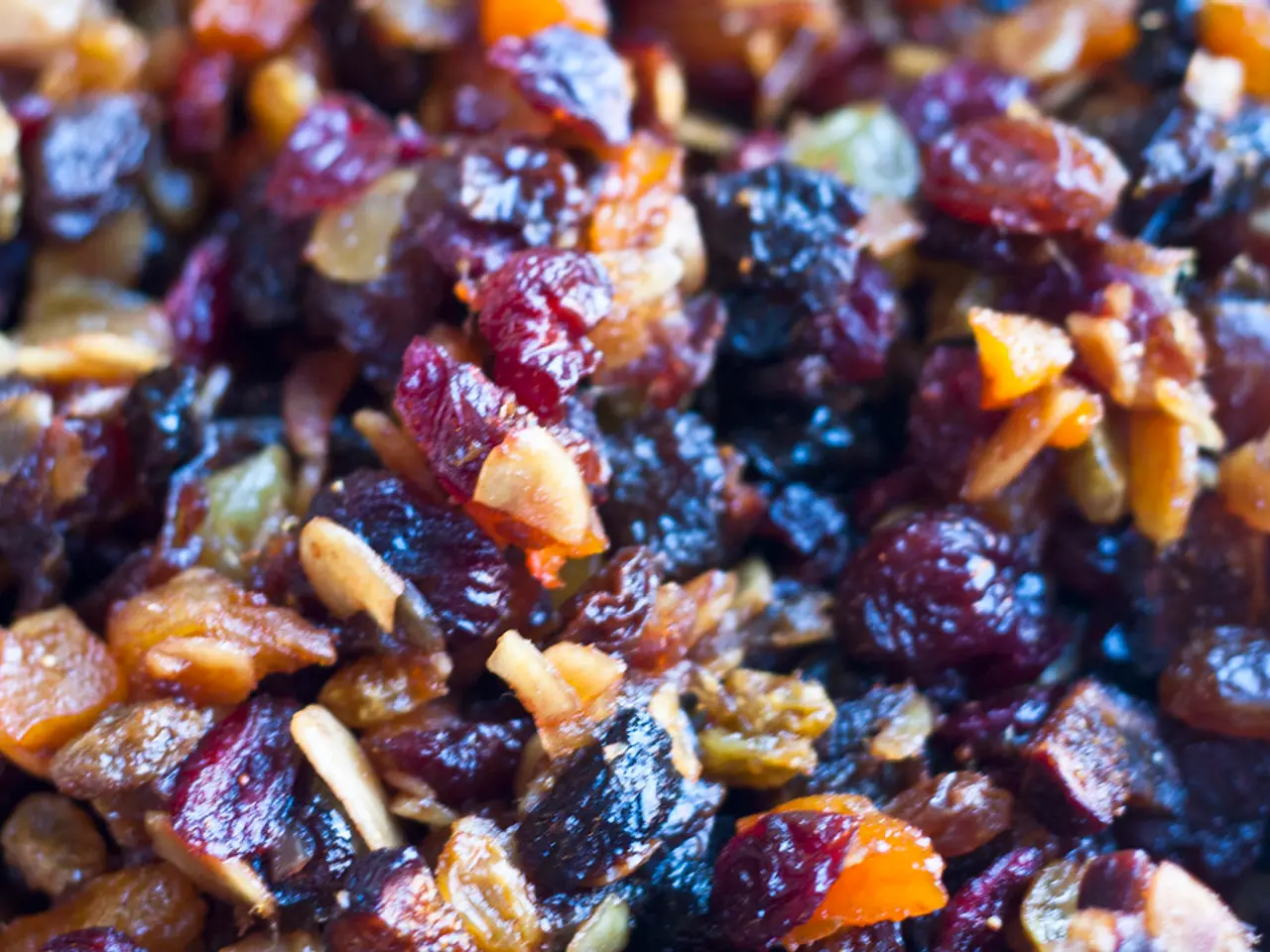Impact of menstruation on bowel movements: Understanding the influence of periods on stool habits.
Periods can often bring a host of uncomfortable symptoms, and for some individuals, this includes digestive disturbances. Here's a look at why these issues occur and what can be done to manage them.
Research indicates that people may experience heightened sensitivity to pain and discomfort during the premenstrual phase and on their periods [1]. This increased sensitivity can impact the gastrointestinal tract, leading to a range of symptoms such as constipation, diarrhoea, or more frequent bowel movements.
The primary cause of these changes is hormonal fluctuations, particularly changes in prostaglandins and estrogen levels. Prostaglandins, hormones that stimulate muscle contractions, increase during menstruation, causing the uterus to contract but also affecting the intestines, leading to faster or altered bowel movements [2]. Estrogen fluctuations can slow digestion or cause bloating by affecting gut bacteria and inflammation levels [3].
Imbalances in gut bacteria (dysbiosis) or increased intestinal permeability (leaky gut) can further disrupt hormone regulation and increase systemic inflammation. This worsens symptoms like cramping, bloating, and irregular bowel movements during periods. Poor digestion can also delay hormone excretion, causing more estrogen to recirculate and potentially worsen symptoms [4].
Conditions such as endometriosis can cause painful bowel movements and gastrointestinal symptoms that worsen cyclically with menstruation. These symptoms may be confused with Irritable Bowel Syndrome (IBS) or food sensitivities but align closely with menstrual changes [5].
Fortunately, there are several strategies to manage period-related bowel symptoms. Hydration is key, with drinking plenty of water helping maintain regular bowel movements and reduce constipation [2]. Dietary adjustments can also be beneficial. Eating nutrient-dense, easily digestible foods during menstruation, incorporating anti-inflammatory foods like leafy greens, fatty fish, and whole grains, and considering reducing processed foods, high sugar, gluten, and dairy if they worsen symptoms can help [1][2][5].
Managing stress and engaging in regular exercise can also alleviate abdominal discomfort and irregular bowel habits [2]. Stress can exacerbate gut symptoms and IBS, while exercise improves blood circulation and can reduce menstrual pain and improve digestion [5].
Monitoring how bowel habits change throughout the cycle can help anticipate symptoms and better tailor diet and lifestyle for relief [2]. If symptoms are severe, painful, or disrupt daily life, it is advisable to consult a healthcare provider to rule out underlying conditions like endometriosis or IBS [3][5].
Hormonal birth control, such as the oral contraceptive pill, can help regulate hormone levels and reduce PMS symptoms in some individuals [6]. However, it's always crucial to discuss these options with a healthcare provider first.
In summary, hormonal changes during the menstrual cycle significantly affect bowel movements by altering gut motility and inflammation. Managing these symptoms involves hydration, a balanced anti-inflammatory diet, stress reduction, exercise, and symptom tracking. If period-related bowel disturbances get in the way of a person's daily life, they can talk to their doctor about the best treatment options.
References: [1] https://www.ncbi.nlm.nih.gov/pmc/articles/PMC6885152/ [2] https://www.ncbi.nlm.nih.gov/pmc/articles/PMC6450489/ [3] https://www.ncbi.nlm.nih.gov/pmc/articles/PMC6634851/ [4] https://www.ncbi.nlm.nih.gov/pmc/articles/PMC6634851/ [5] https://www.ncbi.nlm.nih.gov/pmc/articles/PMC6712860/ [6] https://www.ncbi.nlm.nih.gov/pmc/articles/PMC5686326/
- Menstruation can lead to increased sensitivity to pain and discomfort, causing various digestive disturbances such as constipation, diarrhea, or irregular bowel movements.
- Hormonal fluctuations during menstruation, particularly changes in prostaglandins and estrogen levels, contribute significantly to these digestive health issues.
- Imbalances in gut bacteria or increased intestinal permeability can further aggravate menstrual symptoms, resulting in conditions like cramping, bloating, and irregular bowel movements.
- Conditions such as endometriosis can cause painful bowel movements and gastrointestinal symptoms that worsen cyclically with menstruation.
- Strategies to manage period-related bowel symptoms include hydration, a balanced anti-inflammatory diet, stress reduction, exercise, and symptom tracking.
- Consulting a healthcare provider is advisable if symptoms are severe, painful, or disrupt daily life, to rule out underlying medical-conditions like endometriosis or IBS.
- Hormonal birth control methods, such as the oral contraceptive pill, can help alleviate PMS symptoms in some individuals, but it's always crucial to discuss these options with a healthcare provider first.
- Women's health is closely linked to digestive health, mental-health, and overall health-and-wellness, making it important to address period-related bowel disturbances for a holistic approach to wellness.
- Predictive science can play a role in effectively managing menstrual symptoms, as monitoring how bowel habits change throughout the cycle provides insights for better management strategies.




